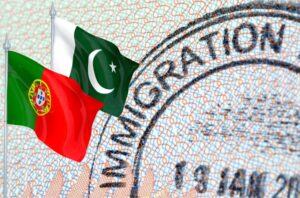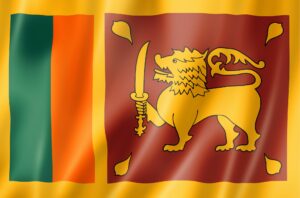Second passports are the talk of the international investment community. If you’re considering this venture, chances are the following two questions have come up at some point: am I eligible, and is it a good move for me? There are over 20 citizenship-by-investment programmes available with options to suit every unique circumstance, and securing a second passport can be as simple as securing any other investment. In this article we break down the programmes by region to help you explore whether second citizenship is the right step for you.
Second passports are the talk of the international investment community. If you’re considering this venture, chances are the following two questions have come up at some point: Am I eligible, and is it a good move for me?
So let’s get right to the answers.
The major eligibility requirement for a second passport through citizenship-by-investment is financial. Probably no shock there. But what might surprise you is the range of financial options available. Let’s break these down by region.
Financial eligibility – Caribbean overview
To give a sense of what to expect, let’s examine a couple of quick examples from the Caribbean. The two countries with the most affordable second passports are St. Lucia and Dominica – both awarded on non-refundable donations of USD 100,000 into government funds. In fact, most of the Caribbean programmes represent a similar investment – a minimum of USD 200,000 for Antigua and Barbuda; USD 200,000 for Grenada; 250,000 for St. Kitts and Nevis.
For a slightly higher outlay, most of these programmes allow you to invest in real estate. St. Kitts and Nevis, for instance, grant you a second passport if you invest USD 400,000 in government-approved developments, which you need only hold for five years. The islands introduced changes in 2012 that allow you to resell your property as part of the second citizenship programme, so there’s practically a guaranteed market for resale. Dominica follows the same principle – an investment of USD 200,000 into real estate earns you a second passport and you can resell after five years under the same programme. Plus government-approved developers offer a guaranteed 2% annual return, so your wealth is working for you while securing your passport.
Financial eligibility – the situation in Europe
Outside the Caribbean, this diversity of financial options continues. Securing second citizenship in the EU requires a higher investment – up to EUR 2m in Cyprus – but the returns are arguably higher for an EU passport holder. Bulgaria offers an attractive option, allowing you to invest just over EUR 500,000 into fully secured government bonds for five years, with another EUR 500,000 earning you fast-track to citizenship within one year instead of five. There’s even a financing option, if your liquid capital is limited.
So from lower-end to higher-end, non-refundable to guaranteed returns, there’s huge scope to find a second passport programme that works financially for you.
Other eligibility considerations
So we have covered financial. With that in mind, most second citizenship programmes have minimal additional eligibility requirements. One aspect that every programme does agree upon is that you must be of ‘good character’ – meaning you should hold a clean criminal record, and your wealth must be of legal origin. You’re often further required to demonstrate a clean bill of health, particularly with regards to infectious diseases.
The European programmes generally require that you have good standing within the EU – meaning you don’t have debts, haven’t had property frozen, and aren’t on any banned travel lists across the union.
In terms of visiting the country or learning the language, the requirements do vary. The Caribbean programmes have fewest limitations – you needn’t travel to, visit, or speak the language of any of these countries to secure your second passport. Within the EU, Portugal requires you to have basic knowledge of Portuguese but neither Cyprus, Malta nor Bulgaria have any language requirements.
While the nuances of each country’s eligibility requirements vary, the principle is much the same. If you have capital to invest, it’s likely you could be eligible for the majority of second citizenship programmes.
While the nuances of each country’s eligibility requirements vary, the principle is much the same.
So, should you get second citizenship?
Okay, we have looked at whether you qualify. Next up is whether this is the right decision for you. In the end, the decision to apply for second citizenship really depends on what you’re hoping to achieve. So let’s look at some of the key motivators.
Mobility: Global mobility is a major priority for many investors. If you feel limited by your home passport, second citizenship can open up a world of simple, hassle-free travel. For example, St. Kitts and Nevis passport holders can travel to 138 countries on visa-free or visa-on-arrival terms, while the Cypriot and Bulgarian passports both unlock more than 150 countries. As a Grenadian passport holder, you’ll be one of only 11 nationalities that can travel to the Republic of China visa-free. So if you have reason to travel internationally, a second passport can be a very smart investment.
Political and economic stability: For other investors, second citizenship is an insurance policy. If you worry about political or economic security, a second passport can offer peace of mind. In a global landscape where forced displacement is at a record-high, such concerns are sadly not unfounded. Second citizenship through any of these programmes offers a refuge – not only for you, but for your family. The Caribbean, for instance, is generally politically stable, having good relationships with other countries globally. Portugal is actually the fifth most peaceful country in the world, according to the Global Peace Index 2016, with the likes of Bulgaria and Cyprus also ranking highly.
Safety from natural disaster: Human conflict aside, a second passport can also offer an important sanctuary from natural disaster. A staggering 26.4 million people were displaced by natural disasters since 2008, so second citizenship is an appealing safety net. If that’s your priority, you’ll find the Maltese programme particularly attractive. Malta is the second safest country in the world from natural disasters, according to the World Risk Report 2015.
Opportunity for family: Second citizenship is often a particularly pressing concern if you have children. Safety and security aside, there can be other, less tangible, threats to their welfare – like lack of opportunity. So securing second citizenship can mean economic prosperity for your children. Malta and Cyprus rank joint-33rd on the Human Development Index, for example, and Portugal is 41st. There’s also education to consider. Second citizenship could grant you access to some of the best education institutions globally. Many of the highest-ranking universities in the world are in the EU.
Second citizenship is often a particularly pressing concern if you have children. Safety and security aside, there can be other, less tangible, threats to their welfare – like lack of opportunity.
Lifestyle: There’s also the (arguably more frivolous but nonetheless important) lifestyle benefits to consider. If you have ever fancied ‘getting away from it all’, second citizenship might be exactly what you’re looking for. You certainly wouldn’t be the first investor to make a home on the sunshine-drenched beaches of the Caribbean, or wander Malta’s winding Baroque streets. The Annual Global Retirement Index actually places Malta as the 10th best place in the world to retire, although the Caribbean might have something to say about that. The EU generally is known for offering a fantastic quality of life – Portugal and Cyprus score very highly on the KOF Globalisation Index for instance, ranked 12th and 14th respectively. If you would like to build a home abroad, second citizenship allows you to do so in style.
Unlocking trade: Second citizenship isn’t just about family and leisure though. EU citizenship allows you to access the lucrative European Single Market which boasts around EUR 13tr in economic activity. Meanwhile, second citizenship in St. Kitts and Nevis, Antigua and Barbuda, or Dominica unlocks the British Commonwealth. If you are setting your sights on the States, then Grenadian citizens are entitled to apply for a coveted US E-2 Investor Visa.
Tax benefits: Preferential tax agreements are also a big advantage of second citizenship, allowing you to protect your wealth. For instance, Grenadian citizens are free from foreign income, wealth, inheritance, capital gains and gift tax, and there are generous tax incentives available. Europe too allows you a large degree of tax flexibility, with Bulgaria offering the lowest personal and corporate tax rate in Europe at 10%. Cyprus is another country known for its favourable tax conditions, with tax exemptions including inheritance tax, capital gains, foreign exchange gains, and a corporate income tax rate of only 12.5%.
Preferential tax agreements are also a big advantage of second citizenship, allowing you to protect your wealth.
Finally, second citizenship can be an astute choice of investment if you’re interested in expanding your wealth. For some of these countries, investment simply makes sense – the second passport is only the icing on the cake. The booming real estate markets in Portugal and Malta, for instance, are difficult to ignore, with both showing up to 10% growth in the past year. The Caribbean too stands as an investment opportunity in its own right, with many of the islands attracting significant international attention.
Second citizenship: why wouldn’t you?
If you’re considering investment opportunities, a second passport should definitely be on your radar. Over 20 citizenship-by-investment programmes mean there are options to suit every unique circumstance, and securing a second passport can be as simple as securing any other investment. Many of these programmes don’t even require you to visit the country, and will issue your citizenship promptly. Grenadian citizenship could take as little as 60 days, to put that in context.
Provided your wealth is legal and you’ve got a clean criminal record, second citizenship can be an intelligent and flexible investment that caters to your priorities.
Next Generation Equity is a government-approved provider of second citizenship and residency programmes tailored to the individual needs of discerning clients across the globe. To learn more about our programmes, please sign up for a free consultation via the form below.





